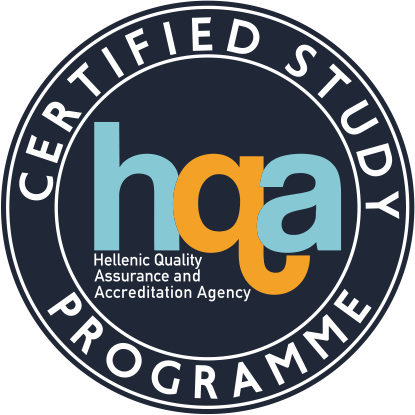History and New Trends of Home Economics
Undergraduate level | 1st semester | Compulsory Unit | ΟΚ0901
Credit Units ECTS: 5
Teaching Hours Weekly: 3
Course Type: General Knowledge
Prequisites: --
Teaching and Examination Language: Greek
For Erasmus students study course and exams are offered in English.

Course Material
Brief historical development of the Home Economics science. Home Economics on the world stage. The ancient Greek view for quality of life. Development, human development index and quality of life. Quality of life dimensions. Quality of life and gender. Problem solving process. Decision making and its importance for life. The concept of happiness and philosophical approaches. Happiness in daily life. How does philosophy contribute to life skills development?
Learning Outcomes
The objective of the course is to study the development of the Home Economics science and explore its role in the quality of life and the human development. On the completion of the course, students are expected to be able to:
- define the concept of Home Economics and recognize its importance;
- associate the content of quality of life and human development with the dimensions of Home Economics;
- determine the importance of progressive problem-solving and decision-making based on critical thinking;
- • pay particular attention to skills that facilitate the acquisition of meaning in their daily lives.
General skills
- Make decisions
- Work autonomously
- Work in teams
- Be critical and self-critical
- Advance free, creative and causative thinking
Learning and Teaching Techniques - Evaluation
Teaching Methods: Face to face
Use of ICT: - Support of learning through the use of asynchronous tele-education platform (e-class). - Communication with undergraduate students through the use of asynchronous tele-education platform (e-class) and e-mail.
Course Organization:
| Activity | Semester Work Load |
|---|---|
| Lecture | 20 |
| Group work activities | 19 |
| Individual/non-guided studying | 39 |
| Bibliography studying and analyzing | 47 |
| Total | 125 |
Assessment Methods:
Students’ assessment is based on the final written examination that includes:
- short close ended questions
- reflective thinking issue writing through the study of short scenarios
Main criteria for the assessment during written examination are:
- Scientific substantiation and correctness of the answers
- Reflective and composing ability as regards studying and using of sources and material provided
- Expressiveness, clarity and comprehensiveness of the answers
- Thought organization, structure of the written answers
The above mentioned criteria are described to the students during the first teacher-student meeting, and are displayed in the e-class website throughout the semester.
Suggested Bibliography
- Αποστολόπουλος, Κ. (2009). Οικιακή Οικονομία: Ιστορική Αναδρομή, Φιλοσοφική Θεώρηση, Εισαγωγή στη σύγχρονη Ανθρωποοικολογία, Αθήνα: ΕΛΛΗΝΟΕΚΔΟΤΙΚΗ.
- Κουτρούμπα, Κ. και Αποστολόπουλος, Κ. (2003). Η Οικιακή Οικονομία στην Αρχαία Ελλάδα και οι Απαρχές της Σύγχρονης Ανθρωποοικολογίας, Αθήνα: Αθ. Σταμούλης.
- Aknin, L. et al. (2013). Prosocial Spending and Well-Being: Cross-Cultural Evidence for a Psychological Universal. Journal of Personality and Social Psychology, 104(4), 635-652.
- Marinoff, L. (1999). Plato, Not Prozac!: Applying Eternal Wisdom to Everyday Problems. USA: Harper Collins Publisher.
Related scientific journals:
- Applied Research in Quality of Life
- Journal of Personality and Social Psychology



